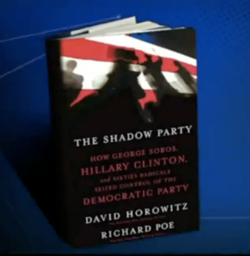How the CIA Lost Vietnam
|
by Richard Poe Wednesday, February 13, 2008 12:00 am Eastern Time |
Archives 3 Comments |
A Four-Part Series CIA Bloggers for Hillary, January 28, 2008 Why Liberals Love the CIA, February 5, 2008 How the CIA Lost Vietnam, February 13, 2008 Walter Cronkite and the CIA, February 26, 2008 |
AMERICANS FACE a grim anniversary this month. Forty years ago, on February 27, 1968, CBS anchorman Walter Cronkite pronounced the Vietnam War a hopeless cause. His forecast was premature. Saigon did not fall for another seven years. What possessed Cronkite to raise the white flag so far in advance?
We now know that Cronkite was simply parroting the CIA line. Agency analysts had been churning out gloomy reports about Vietnam by the ream since 1963.
Sadly, they were not content to issue classified reports through proper channels. They went further. They sought to turn public opinion against the war, using press leaks and disinformation campaigns.
Ironically, it was the CIA that got us into Vietnam in the first place. The military wanted nothing to do with it. In a May 26, 1954 memo, the Joint Chiefs of Staff declared Indochina “devoid of decisive military objectives.” The only way to stop communism in Southeast Asia would be to destroy its supply sources “in China proper”, the Joint Chiefs concluded.
The CIA ignored this advice. In June 1954, it sent Col. Edward G. Lansdale to Vietnam to begin paramilitary operations.
CIA strategists believed they could fight wars more effectively than the Pentagon. Their technique was to dispatch CIA advisors to hot spots, whereupon they would raise armies of local mercenaries. Such operations had borne fruit in Iran (1953-54), Guatemala (1954), the Congo (1960-61) and Laos (1960-62).
Vietnam provided the ultimate testing ground. The CIA was given a free hand there from 1954 through 1964. The experiment failed catastrophically.
In a memorandum of October 19, 1964, CIA officer William Bundy informed President Johnson that the situation was hopeless. America should flee Vietnam and “shore up the next line of defense in Thailand.”
Appalled by such talk, President Johnson turned to the military. In early 1965, he ordered bombing raids on North Vietnam and sent the Marines into Da Nang.
The CIA made a fateful choice. Rather than accept President Johnson’s decision, it resolved to stop him.
For this it was well-equipped with a powerful propaganda network. While heading the CIA’s covert operations division from 1948 to 1956, Frank Wisner recruited hundreds of U.S. journalists at virtually every major newspaper and broadcast network in America. He boasted that he could play the media like a Wurlitzer pipe organ.
Long after Wisner left, his “Mighty Wurlitzer” played on. President Johnson felt the full effects of its wrath.
CIA-friendly journalists Walter Lippmann and James Reston began savaging Johnson’s war policy. The New York Times ran a major feature on March 15, 1965 praising the New Left and glorifying Students for a Democratic Society (SDS).
A group called the League for Industrial Democracy (LID) had launched SDS in 1959. Socialist Party bigwig and LID co-founder Norman Thomas helped shield SDS from critics. Thomas’ Institute of International Labor Research was later exposed as a conduit for CIA funds.
Prior to 1965, SDS focused on poverty and civil rights. In April 1965, it emerged as America’s leading anti-war group, sponsoring a “National March Against the Vietnam War” which brought 20,000 protestors to Washington.
CIA contract consultant Allard Lowenstein established the “Dump Johnson” movement on April 2, 1967. He persuaded anti-war Senator Eugene McCarthy to challenge Johnson in the Democratic primaries.
Meanwhile, the Viet Cong were on the ropes. Communist forces in Vietnam launched the Tet Offensive in January 1968. It was a desperate, suicidal assault on hundreds of cities and towns in South Vietnam. The attack failed. Communist forces met ruin and slaughter on every front.
Nonetheless our media portrayed Tet as a U.S. defeat. Walter Cronkite declared on February 27, 1968:
“We have been too often disappointed by the optimism of the American leaders, both in Vietnam and Washington, to have faith any longer in the silver linings they find in the darkest clouds. … we are mired in stalemate… it is increasingly clear to this reporter that the only rational way out then will be to negotiate, not as victors, but as an honorable people who lived up to their pledge to defend democracy, and did the best they could.”
To this, President Johnson responded, “If I’ve lost Cronkite, I’ve lost middle America.” On March 31, 1968, Johnson announced that he would not seek reelection as president.
The CIA had made its point. Communist victory was still seven years away. But its seeds were sown.
Americans must learn from this dark episode. Even now the “Mighty Wurlitzer” plays. We must never again dance to its tune.
A Four-Part Series CIA Bloggers for Hillary, January 28, 2008 Why Liberals Love the CIA, February 5, 2008 How the CIA Lost Vietnam, February 13, 2008 Walter Cronkite and the CIA, February 26, 2008 |








See reader comments at FreeRepublic.com:
Posted on 02/13/2008 3:47:36 PM PST
Vietnam was lost on the day that Lyndon Johnson told the American people that unless we won in that struggle, our national security would be threatened. Well, North Vietnam now controls South Vietnam and we lost over 35,000 of our sons and our security is still intact.